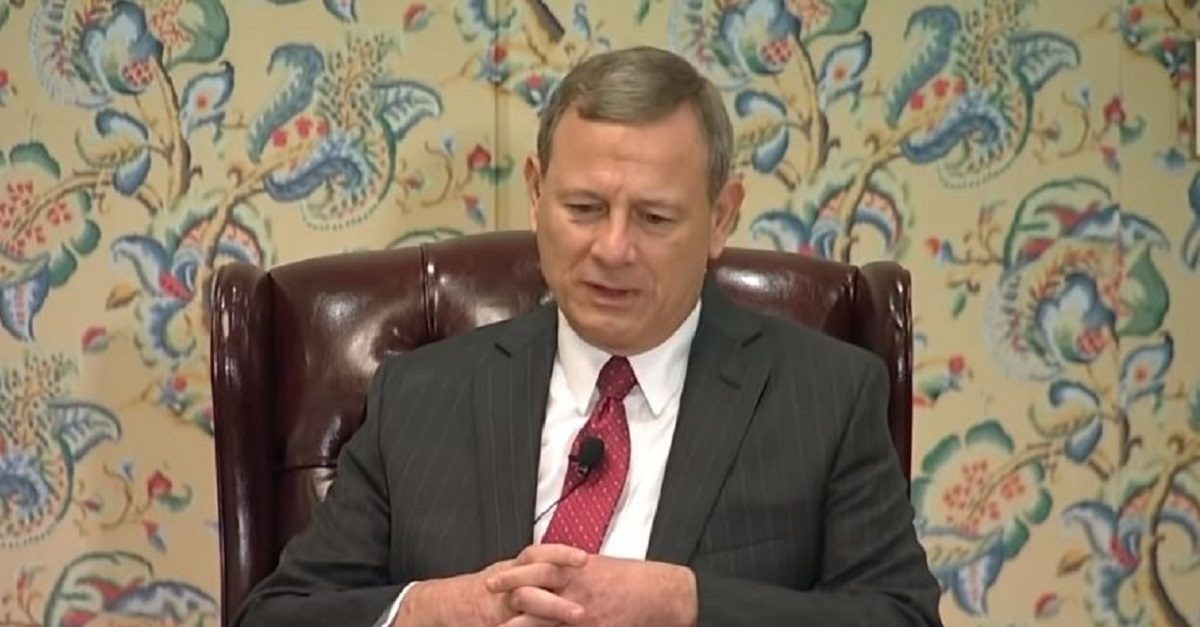
The Trump administration asks and the Trump administration receives–at least when it comes to requests submitted with the conservative-dominated U.S. Supreme Court.
On Friday, Chief Justice John Roberts acceded to a Department of Justice (DOJ) request to stop a lower court order that directed Attorney General Bill Barr to supply Congress with a long-sought-after tranche of secret grand jury materials collected during the Russiagate investigation by former special counsel Robert Mueller.
In a miscellaneous order unlikely to surprise any regular observer of the court or the Democratic Party during the Trump era, Roberts issued a temporary stay on the release of those documents pending a response from attorneys for the U.S. House of Representatives.
“It’s not a surprise [Chief Justice] Roberts temporarily stays disclosure of grand jury materials in the Mueller report,” Supreme Court reporter Robert Barnes noted. “House lawyers had agreed to May 18th delay while justices consider Trump administration request for longer hold.”
Roberts’ terse administrative stay order reads, in full:
UPON CONSIDERATION of the application of counsel for the applicant,
IT IS ORDERED that the mandate of the United States Court of Appeals for the District of Columbia Circuit, case No. 19-5288, is hereby stayed pending receipt of a response, due on or before Monday, May 18, 2020, by 3 p.m. ET, and further order of the undersigned or of the Court.
Roberts’s order means that House Judiciary Committee lawyers will likely soon file a brief to argue why the longer hold shouldn’t be granted. Democrats accepted the administrative stay “out of respect” for the Supreme Court.
Still, the appearance of Roberts’ quickly acquiescing once again to the Trump administration’s whims was easily mocked:
tl;dr SCOTUS order https://t.co/sWYi6NiTbB pic.twitter.com/LoL9pMiJld
— National Security Counselors (@NatlSecCnslrs) May 8, 2020
The move comes just one day after DOJ asked for the stay by arguing the department would suffer “irreparable harm” should Democrats on the Hill obtain the full and unredacted version of Mueller’s report on election interference and obstruction of justice.
The legal concept of “irreparable harm” isn’t quite as sinister or whinging as it sounds, however, it simply means an injury that cannot be reversed or cured by way of monetary compensation. And DOJ has also pleaded this concept before the lower courts.
DOJ attorneys argued that a recent circuit court decision granting congressional investigators access to those documents relied upon an incorrect interpretation of a statute that permits courts to release materials related to the course of a “judicial proceeding.”
Legal wrangling in the case has almost entirely been confined to this narrow discussion about what exactly qualifies as such a proceeding.
Per Democrats and multiple courts, a “judicial proceeding” encompasses a broad array of activities–up to and including President Donald Trump‘s impeachment hearings and trial.
The DOJ, on the other hand, has consistently argued for a much more limited understanding of the term–and been consistently beaten up by federal courts in the process of trying to maintain that posture.
The wounds for Barr’s DOJ here are somewhat self-inflicted.
In October 2018, U.S. District Judge Beryl A. Howell admonished the White House and DOJ for maintaining the Democrats’ own specific interpretation of “judicial proceeding” in a separate case the year before.
[image via screengrab/C-SPAN]